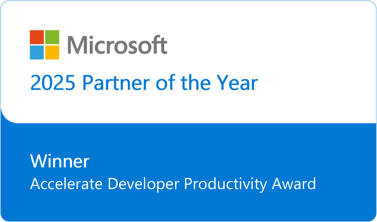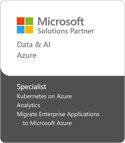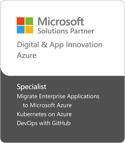Any .Net developer can tell you that Visual Studio is an integrated development environment (IDE) to develop software. However, I find that relatively few developers (or product managers) are familiar with the features and advantages of Visual Studio Team System (VSTS), including Team Foundation Server (TFS) as compared to Visual Studio, so for those of you who might not know, I’ll cover some key points.
Visual Studio 2008 & Editions
Most of us are aware that we don’t need Visual Studio or any IDE to develop software, but it certainly speeds up the process, and since Visual Studio 2005, we’ve been able to do the basics for free with the Express Edition. As of the time of this posting, you are looking at spending $250 for Standard Edition and about $500 for Professional Edition. Professional Edition has almost everything you could want to perform .Net application development. The Standard Edition does not include some of the features that are in the Professional Edition, most notably SQL Server integration and remote debugging capabilities.
Visual Studio Team System (VSTS) & Editions
Visual Studio Team System offers everything that Visual Studio Professional Edition offers and adds more - how much more depends on the edition of Team System Team Foundation Server. Microsoft organized the editions around different roles that team members play in software development. For instance, the Development Edition includes additional features for Analyzing the performance of your software like code metrics and code profiling. The Test Edition includes additional features for automated web testing and load testing of applications. One things they all include is the Workgroup edition of Team Foundation Server (TFS), which will allow 5 users to connect and collaborate on software development, so TFS is a key component of VSTS.
Team Foundation Server (TFS)
TFS is a server application suite that will enable a team of software developers to collaborate.
- It enables users to track tasks / bugs / issues (think Bugzilla, Mantis, Devtrack, Fogbugz, TeamTrack, etc…).
- It uses a customizable structure called a Process Template to centrally enforce or encourage development practices and methodologies (like CMMI, Agile, Scrum, etc…).
- It installs SharePoint portals that software team members can use to collaborate.
- It uses SQL Server as a back-end and includes the ability to create sophisticated reports about development activity.
All off these components interact and integrate with TFS’s own SQL Server-based version control system, Team Foundation Version Control (TFVC).
Many people comfortable with other SCM tools and systems (think Perforce, CVS, Subversion, Visual Source Safe, etc…) think that TFS is a source/ version control system – and it is, but that’s just really touching the surface; While most other systems I know of require some scripting / hacking / or other magic to integrate separate tracking and reporting tools in order to get them to work together in a valuable way, TFS is completely integrated and it all works together out of the box.
Unlike some other systems, TFS is typically implemented for mid-to-large sized teams, and while you can use it to perform any development activities, it is optimized to work best for .Net development teams. So, a single developer working independently is not the typical TFS user. It scales very well and can easily support hundreds of users’ development activities. Also, it’s fast – people who are used to using Visual Source Safe will typically see an amazing increase in speed when performing source control operations after they migrate to TFS.
If you are not already familiar with TFS, you should definitely check it out as there is a lot more to Team System then you might imagine, and there’s a lot of buzz around the additional tools and features in the upcoming version of VSTS 2010. InCycle Softwarehas a many happy clients using TFS. If you are interested or curious, we can definitely help you determine if VSTS with TFS is a good fit for your team. Or if you already have TFS, we can help you get the most from your current TFS implementation, or assist you to plan a stable and efficient upgrade to VSTS 2010. For more information, contact us at info@incyclesoftware.com.









